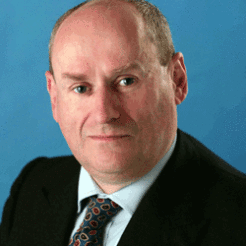Fundraisers must represent the ambitions of donors within their organisations. Your job is not just to bring in the money, says Giles Pegram, it is to effect the change your donors long for.
One of the things you rarely read about in the fundraising press is the role of the fundraiser as the voice of the donor in an organisation - yet, this is vital.
Organisations, particularly large organisations are very, well, organisational, in my experience. They are often lumbered with big, bureaucratic and with arcane decision making processes that are not aspirational. However, our donors increasingly want big, ambitious solutions to big problems. This trend is probably related to the transfer of wealth to the ‘baby boomer’ generation, who believe you can change the world, not just tweak it at the edges.
Fundraisers have a duty to represent the ambitious ‘big change’ view of donors like these in their organisation.
In 1993, the NSPCC knew it wanted to move from lone inspectors to child protection teams, but it agonised over details - exactly how many protection teams were needed, where they’d be located and when they would be open. Finally I asked ‘can we say that we aim to set up at least 60 child protection teams over the next five years?’ A two-minute discussion produced the answer (‘yes’), and so we had a fundraising proposition and an action plan.
Then in 1997 the NSPCC knew we wanted to end cruelty to children. But once again we agonised over the specific ambitious programmes that would lead us towards that. I needed an aspirational case statement within six weeks if we were to maintain the momentum of our appeals steering group, and the credibility of the entire NSPCC. Our chief executive didn’t believe it could be done.
I had dinner with Jim Harding, the chief executive, and asked him to host weekly meetings, bringing in the key players from across the UK, and to work on developing the plan for as long as it takes each day. A plate of lasagne and a bottle of wine later, and the idea seemed possible. Jim grasped it, directed it, and led the weekly meetings.
We had a business plan in five weeks.
Nick Booth, the director of what became the Full Stop campaign, myself and the fundraising team then camped out in the office over the weekend, with consultants Redmond Mullin and Bernard Ross at the end of a phone. We wrote the case for support. Things got moving. Success.
In these examples, fundraisers, on behalf of donors, was forcing the pace of change.
After thirty years I now cease to be an appeals director. But my valedictory message to all appeals directors is to ask whether your organisation is being clear and aspirational enough in tackling the problems it was set up to solve, to meet the aspirations of your donors and potential donors.
Don’t be afraid of being the agent provocateur in your organisations.
Giles Pegram has been director of fundraising at NSPCC for 30 years but will retire in April









